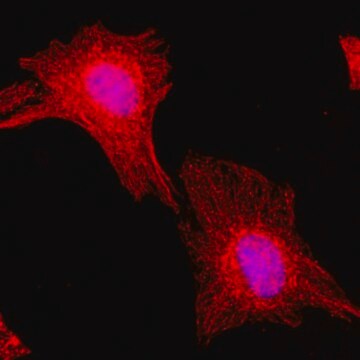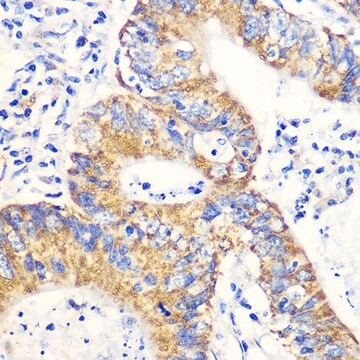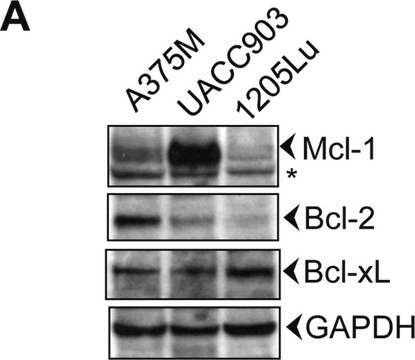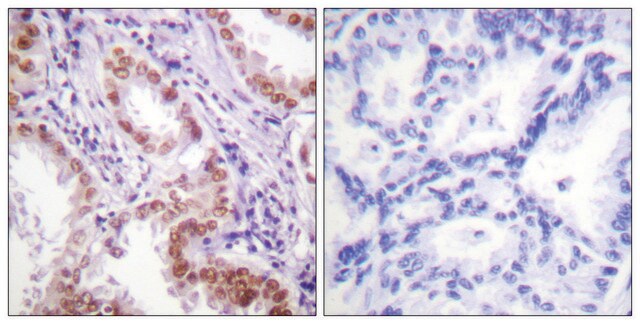SAB4200651
Monoclonal Anti-Histone H3 (C-terminal) antibody produced in mouse
clone H6.10, purified from hybridoma cell culture
About This Item
Recommended Products
biological source
mouse
Quality Level
antibody form
purified immunoglobulin
antibody product type
primary antibodies
clone
H6.10, monoclonal
form
buffered aqueous solution
mol wt
antigen ~14 kDa
species reactivity
chicken, human, monkey, hamster, canine
concentration
~1 mg/mL
technique(s)
immunoblotting: 0.25-0.5 μg/mL using using histones isolated from human HeLa cells.
immunofluorescence: 5-10 μg/mL using using HeLa cells.
isotype
IgG1
shipped in
dry ice
storage temp.
−20°C
target post-translational modification
unmodified
Gene Information
human ... HIST1H3A(8350)
General description
Immunogen
Application
- immunoblotting
- immunofluorescence
- western blotting
Biochem/physiol Actions
Physical form
Disclaimer
Not finding the right product?
Try our Product Selector Tool.
Storage Class
10 - Combustible liquids
wgk_germany
WGK 1
flash_point_f
Not applicable
flash_point_c
Not applicable
Choose from one of the most recent versions:
Certificates of Analysis (COA)
Don't see the Right Version?
If you require a particular version, you can look up a specific certificate by the Lot or Batch number.
Already Own This Product?
Find documentation for the products that you have recently purchased in the Document Library.
Our team of scientists has experience in all areas of research including Life Science, Material Science, Chemical Synthesis, Chromatography, Analytical and many others.
Contact Technical Service






